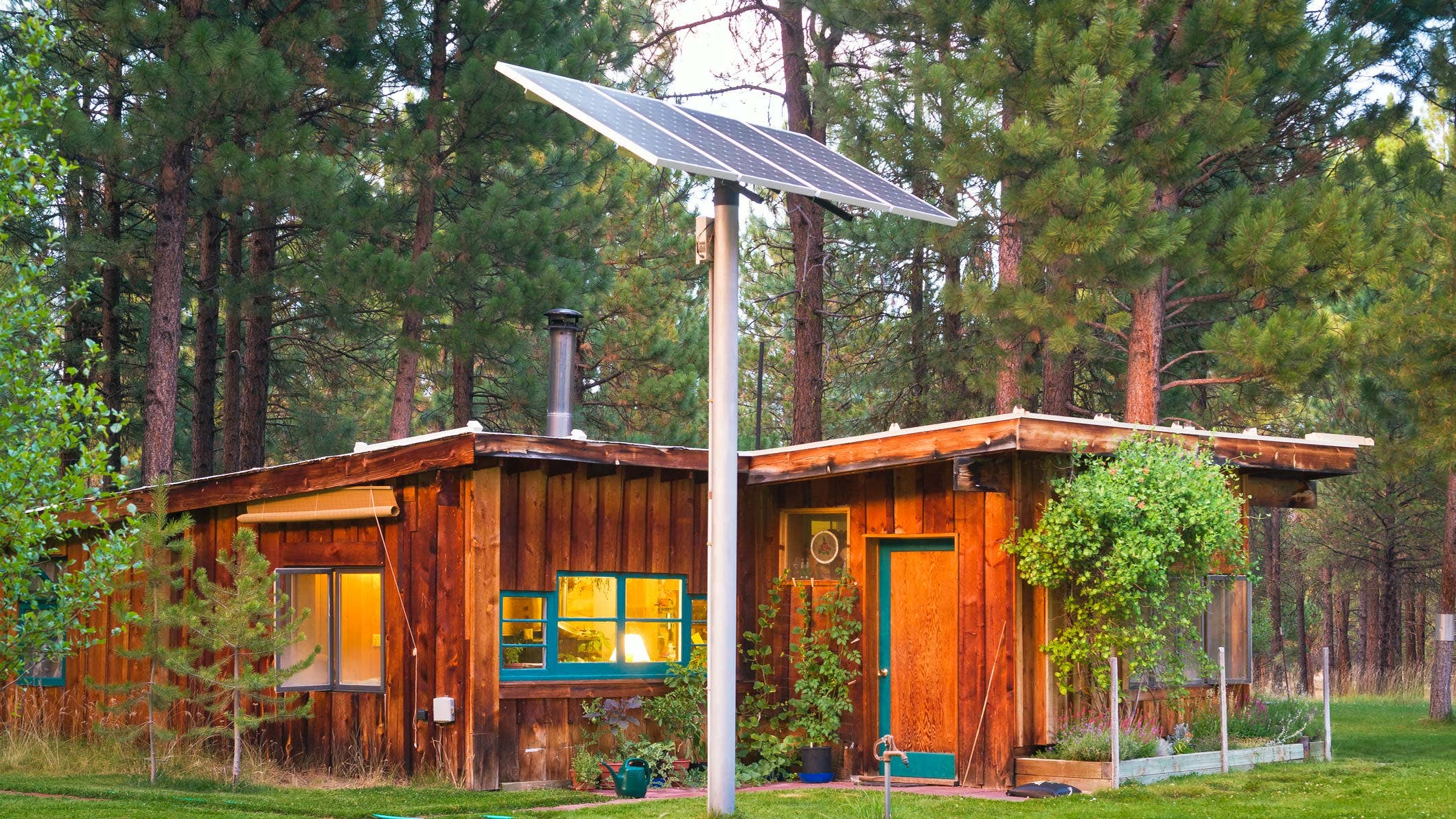Off grid living community UK represents a burgeoning movement, attracting individuals and families seeking self-sufficiency and a closer connection with nature. This pursuit, however, necessitates navigating complex legal landscapes, implementing sustainable practices, and fostering strong community bonds. The challenges are significant, ranging from securing planning permission and managing waste responsibly to ensuring reliable energy and food sources. Yet, the rewards – a simpler life, reduced environmental impact, and a heightened sense of community – are equally compelling, driving the growth of this unique lifestyle choice.
This exploration delves into the multifaceted aspects of establishing and maintaining off-grid communities within the UK, examining the legal framework, sustainable practices, community dynamics, technological requirements, economic considerations, and environmental impact. We will analyze successful models, highlight potential pitfalls, and offer insights into building a thriving and sustainable off-grid community in the British Isles.
Legalities and Regulations of Off-Grid Living in the UK: Off Grid Living Community Uk
Establishing an off-grid community in the UK presents significant legal challenges, requiring careful navigation of planning permission, water and waste management regulations, and energy generation policies. The lack of a single, comprehensive legal framework necessitates a thorough understanding of various interconnected regulations at national and local levels.
Planning Permission Requirements
Securing planning permission for an off-grid community is a complex process, often involving multiple applications and consultations. Local planning authorities assess proposals based on national planning policies, local plans, and environmental considerations. Key factors influencing approval include the scale of the development, its impact on the landscape and surrounding environment, access to services (even if self-provided), and compliance with building regulations.
Applications typically require detailed plans illustrating the layout of dwellings, infrastructure, and waste management systems. Refusal may occur if the proposed development is deemed detrimental to the environment, visually intrusive, or poses risks to public safety. Appealing a refusal can be a lengthy and costly process. For example, a community proposing several dwellings and extensive land use would face a far more rigorous application process than a single, small-scale off-grid dwelling.
Legal Implications of Water Sourcing and Waste Disposal
Off-grid communities must comply with stringent regulations regarding water sourcing and waste disposal. Sourcing water from private wells or boreholes necessitates obtaining appropriate licenses and ensuring water quality meets standards set by the Drinking Water Inspectorate. Failure to comply can lead to significant fines and potential legal action. Wastewater management is equally crucial. Regulations require effective treatment systems to prevent pollution of groundwater and surface water.
Septic tanks and other on-site treatment solutions must meet stringent environmental standards and undergo regular inspections. Improper waste disposal can result in heavy penalties and environmental damage. For instance, a community failing to adequately treat sewage could face prosecution under the Environmental Protection Act 1990.
Regulations Concerning Energy Generation
Regulations concerning renewable energy generation vary across UK regions. While the government generally supports the use of renewable energy, specific rules on installation and connection to the national grid (even if not directly connected) differ depending on local planning policies and network operator requirements. For example, the height restrictions for wind turbines might be stricter in certain areas due to their impact on the landscape and potential effects on aviation.
Similarly, obtaining planning permission for solar panels might involve consultations with local authorities and potentially involve restrictions on the scale of the installation. In some areas, community-owned renewable energy projects may benefit from additional support and streamlined permitting processes. However, even for small-scale, off-grid systems, compliance with building regulations and electrical safety standards is paramount.
Hypothetical Legal Framework for a Small Off-Grid Community
A hypothetical legal framework for a small off-grid community would need to address several key areas. Firstly, a legally binding agreement amongst community members outlining responsibilities, decision-making processes, and dispute resolution mechanisms would be essential. This agreement should encompass shared resources, land use, and maintenance of communal infrastructure. Secondly, clear guidelines on waste management, water usage, and energy generation, ensuring compliance with all relevant national and local regulations, must be established.
Finally, a robust system for conflict resolution, perhaps involving mediation or arbitration, should be incorporated to prevent disagreements from escalating into legal battles. This framework should be reviewed and updated regularly to adapt to changing circumstances and ensure continued compliance with evolving legislation. A well-defined legal framework minimizes the risk of disputes and ensures the long-term viability of the community.
Technological Considerations for Off-Grid Living in the UK
Successfully navigating off-grid living in the UK requires careful consideration of appropriate technologies. The unpredictable British weather necessitates robust and reliable systems, while the limitations of space and resources demand efficiency and practicality. This section explores the key technological aspects vital for a comfortable and sustainable off-grid existence.
Renewable Energy Technologies for the UK Climate
The UK’s climate, characterized by moderate sunlight and frequent wind, presents both challenges and opportunities for renewable energy generation. Several technologies are well-suited to this environment. Wind turbines, for instance, can harness the consistent winds, although their visual impact and potential noise pollution must be considered. Photovoltaic (PV) solar panels are effective, though their output varies with sunlight availability.
Hydropower, suitable for areas with streams or rivers, offers a consistent energy source but requires significant initial investment and may have environmental implications. Ground source heat pumps offer efficient heating and cooling, utilizing the stable temperature of the earth, but necessitate substantial upfront costs and groundworks. Each technology has its advantages and disadvantages depending on location, budget, and environmental impact considerations.
Essential Off-Grid Technologies and Their Maintenance
Reliable operation of essential systems is paramount in off-grid living. Water purification is critical, and various methods exist, including rainwater harvesting with filtration systems, UV sterilisation, and water filters. Regular cleaning and filter replacements are crucial for maintaining water quality. Energy storage is equally important, with batteries (lead-acid, lithium-ion) providing backup power. Regular monitoring of battery voltage and charge cycles, as well as periodic testing, is essential to prevent premature failure.
For communication, satellite phones or two-way radios offer connectivity, but require subscription fees and careful consideration of range and signal strength. Regular checks for signal quality and battery life are necessary. Maintenance schedules should be meticulously documented and adhered to for all systems.
Energy Efficiency Measures in Off-Grid Contexts, Off grid living community uk
Energy efficiency is paramount in off-grid settings due to the limited energy generation capacity. Implementing energy-efficient measures can significantly reduce energy consumption. High-performance insulation in buildings, using materials like sheep’s wool or cellulose, minimizes heat loss. Double or triple glazing on windows further enhances insulation. Energy-efficient appliances, such as low-energy lighting (LEDs) and A+++ rated refrigerators, significantly reduce electricity demand.
Careful consideration of building orientation and passive solar design can also contribute to reducing heating needs. For example, a south-facing wall with large windows can maximize solar heat gain in winter.
A Simple Off-Grid Communication System for a Small Community
Establishing reliable communication within a small off-grid community requires a multi-faceted approach. A combination of two-way radios with a repeater system extending range could be implemented. The repeater, located at a high point for optimal signal propagation, would boost the signal between radios, increasing communication range significantly. A backup system, such as satellite phones for emergency situations or contact with the outside world, is crucial.
Regular testing of the system and maintenance of the radios and repeater are essential to ensure reliability. The community could establish a schedule for regular communication checks and emergency procedures.
The rise of off-grid living communities in the UK reflects a growing desire for alternative lifestyles, emphasizing sustainability, self-reliance, and community engagement. While challenges exist regarding legal compliance, resource management, and financial stability, the potential benefits – both environmental and social – are undeniable. Successfully navigating these challenges requires careful planning, a commitment to sustainable practices, and a strong sense of community spirit.
The future of off-grid living in the UK hinges on the ability to balance individual aspirations with the collective responsibility for environmental stewardship and community well-being.
Notice off grid living festival 2024 for recommendations and other broad suggestions.


